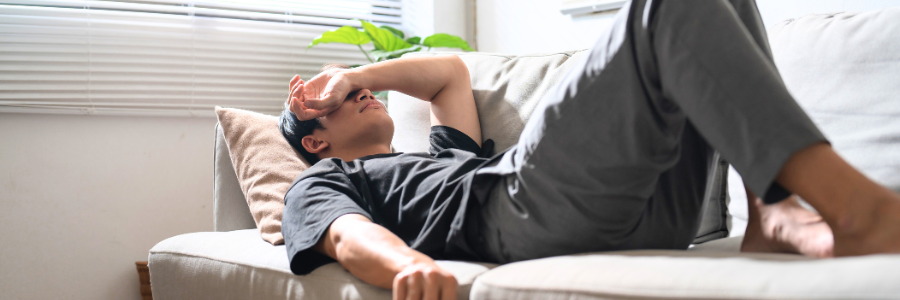Health Anxiety
 Your relationship with Health Anxiety can be changed without medication
Your relationship with Health Anxiety can be changed without medication
Understanding Health Anxiety
Health anxiety, also known as illness anxiety disorder or hypochondriasis, is a persistent worry about having or developing a serious illness. For those who experience it, the mental toll is often immense. Despite being reassured by doctors, people with health anxiety might find themselves endlessly analysing physical sensations or misinterpreting minor symptoms as signs of severe conditions. This hypervigilance and overthinking create a vicious cycle of fear and stress that can be challenging to break.
People who suffer from health anxiety, despite numerous medical tests coming back normal, find it hard to shake the fear that they are overlooking something serious. It’s the “what if” that drives health anxiety – the idea that there’s an unseen danger lurking, even when logic tells them otherwise. This cycle is tough to break because health anxiety convinces us that worry is somehow protective. People feel that by focusing on every bodily sensation, they’re being vigilant and preventing harm. But ironically, this vigilance heightens stress and anxiety, leading to an endless cycle of fear and distress.
The Power of CBT in Addressing Health Anxiety
Cognitive Behavioural Therapy (CBT) is widely recognised as an effective treatment for health anxiety. One core element of CBT is identifying and challenging unhelpful thought patterns. For instance, if someone notices a headache, they might automatically think, “What if it’s a brain tumour?” CBT encourages them to pause and question that assumption. Is there evidence to support this fear? Are there alternative explanations, like stress or dehydration?
I someone who would constantly stomach pain worried it was cancer, despite multiple clear tests. Through CBT, she began to challenge these catastrophic thoughts by examining other, less alarming causes and reframing her responses to discomfort. Techniques such as “thought records” help people track their worries and practice reinterpreting sensations in a more balanced way.
Hypnotherapy for Calming the Mind
Hypnotherapy offers another avenue for managing health anxiety by helping clients reach a relaxed state where they can reframe anxious thoughts and let go of tension. Dr. Christine Padesky, a psychologist, explains that hypnotherapy doesn’t eliminate anxiety but helps in developing a new relationship with it. In a hypnotic state, clients can visualise scenarios where they feel at peace with uncertainty, slowly training their minds to release the need for constant control and reassurance.
For instance, someone might visualise a soothing image, such as floating down a river, allowing the current to take them where they need to go. This metaphor can help reinforce the idea that some aspects of life – like minor health sensations – don’t need constant monitoring or control. Over time, hypnotherapy allows them to accept the unknown rather than fear it.
Recognising and Breaking the Cycle
A crucial part of managing health anxiety is recognising the cycle of worry. YouTube videos like “5 Ways to Stop the Health Anxiety Cycle” stress the importance of identifying the triggers that lead to spiraling thoughts and learning to respond differently to them. One effective technique is to set “worry periods,” limiting worry time to a specific part of the day. When anxious thoughts arise outside of that period, people remind themselves that they’ll deal with the worry later, often reducing the intensity of their concerns.
Additionally, grounding exercises like mindful breathing or observing the environment can help break the cycle. In the middle of a health anxiety episode, focusing on the present can ground individuals and provide relief. These small practices reinforce that not every sensation needs immediate attention, fostering a healthier relationship with the body.
Seeking Support and Building Resilience
Health anxiety can be isolating, as people may avoid discussing their fears out of shame or embarrassment. Dr. Mattu advises connecting with supportive communities or mental health professionals, as sharing the struggle can be incredibly relieving. Others who have faced similar battles offer empathy and practical advice, reminding those struggling with health anxiety that they’re not alone.
Overcoming health anxiety is not about eliminating all fears; it’s about learning to live with uncertainty. Through CBT, hypnotherapy, and support systems, people gradually reclaim their peace of mind, learning that they have the strength to face whatever comes their way. In the words of many who’ve walked this path, the journey may be challenging, but it’s a journey worth taking – toward a life no longer defined by fear but by resilience and self-acceptance.
For further resources on managing health anxiety, check out some insightful YouTube videos on the subject, like “Understanding & Overcoming Health Anxiety - A Psychologist’s Top Tips” and “5 Ways to Stop the Health Anxiety Cycle,” which offer practical advice and coping strategies.

 By
By


